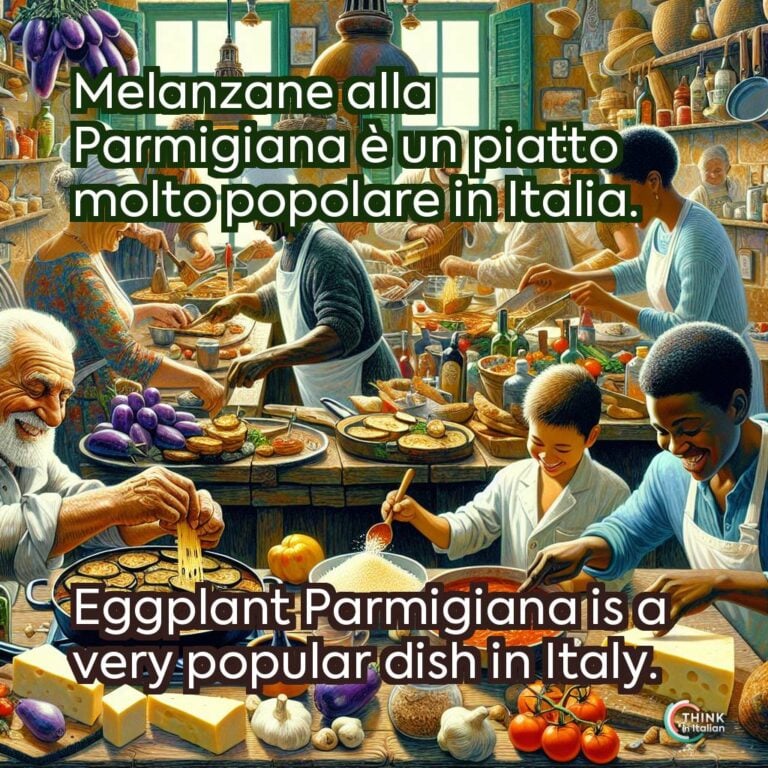How to Say “Eggplant” in Italian
In Italian, “eggplant” is known as melanzana. It is a feminine singular word, which is pluralized into melanzane. The word itself is a staple in Italian cuisine, frequently found in dishes across various regions.
Amo le melanzane alla parmigiana!
I love eggplant parmesan!
Hai provato la pasta con le melanzane?
Have you tried pasta with eggplant?
Interestingly, the Italian word melanzana is believed to be derived from the medieval Latin term mala insana, meaning “mad apple”. The reason for this odd name likely stems from the historical misconception in Europe that eggplants were toxic.
Fortunately, these myths were dispelled as eggplants became popular in Mediterranean diets, and they are now celebrated for their versatility in cooking.
If you, like me, are interested in the history of the Italian language, go check other interesting word origins and etymology!
The Culinary Importance of “Melanzana” in Italy
Eggplant is a widely appreciated ingredient in Italian cuisine. Here I will list a few classic Italian dishes that showcase the versatility of melanzane:
Melanzane alla Parmigiana
Often simply called parmigiana, this is a popular dish across Italy. Layers of fried eggplant slices are combined with tomato sauce, mozzarella, and Parmesan cheese, then baked to perfection. This is my mum’s favorite dish ever!
Pasta alla Norma
This classic Sicilian pasta dish features fried eggplant, tomatoes, basil, and a topping of ricotta salata (a salted ricotta cheese). It’s a tribute to the composer Vincenzo Bellini and his opera “Norma”.
Caponata
This is a Sicilian eggplant salad with a sweet and sour flavor profile, made with eggplant, tomatoes, olives, capers, and a splash of vinegar. It is often served as an appetizer or side dish.
Pizza con le Melanzane
In some regions, you’ll find pizzas topped with thin slices of eggplant, creating a unique variation that highlights eggplant’s ability to absorb flavors and meld well with other ingredients.






